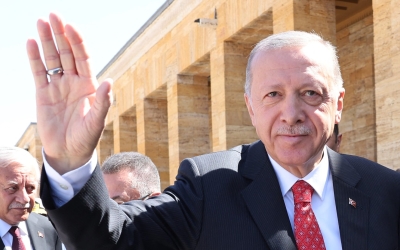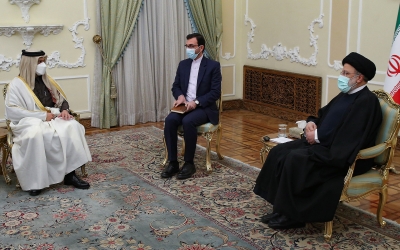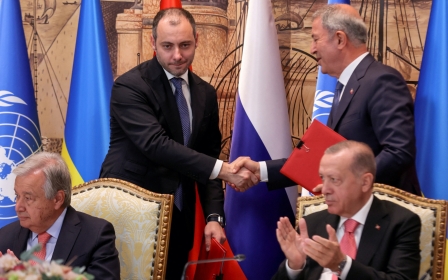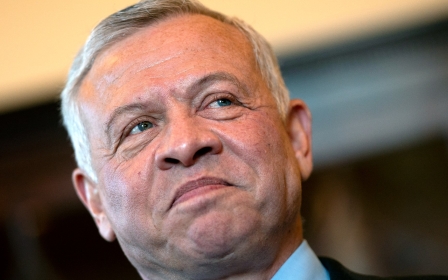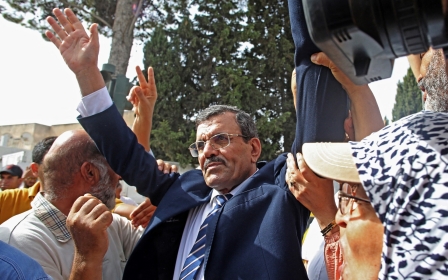UN General Assembly: Middle Eastern leaders raise Israeli occupation, Syria and climate change
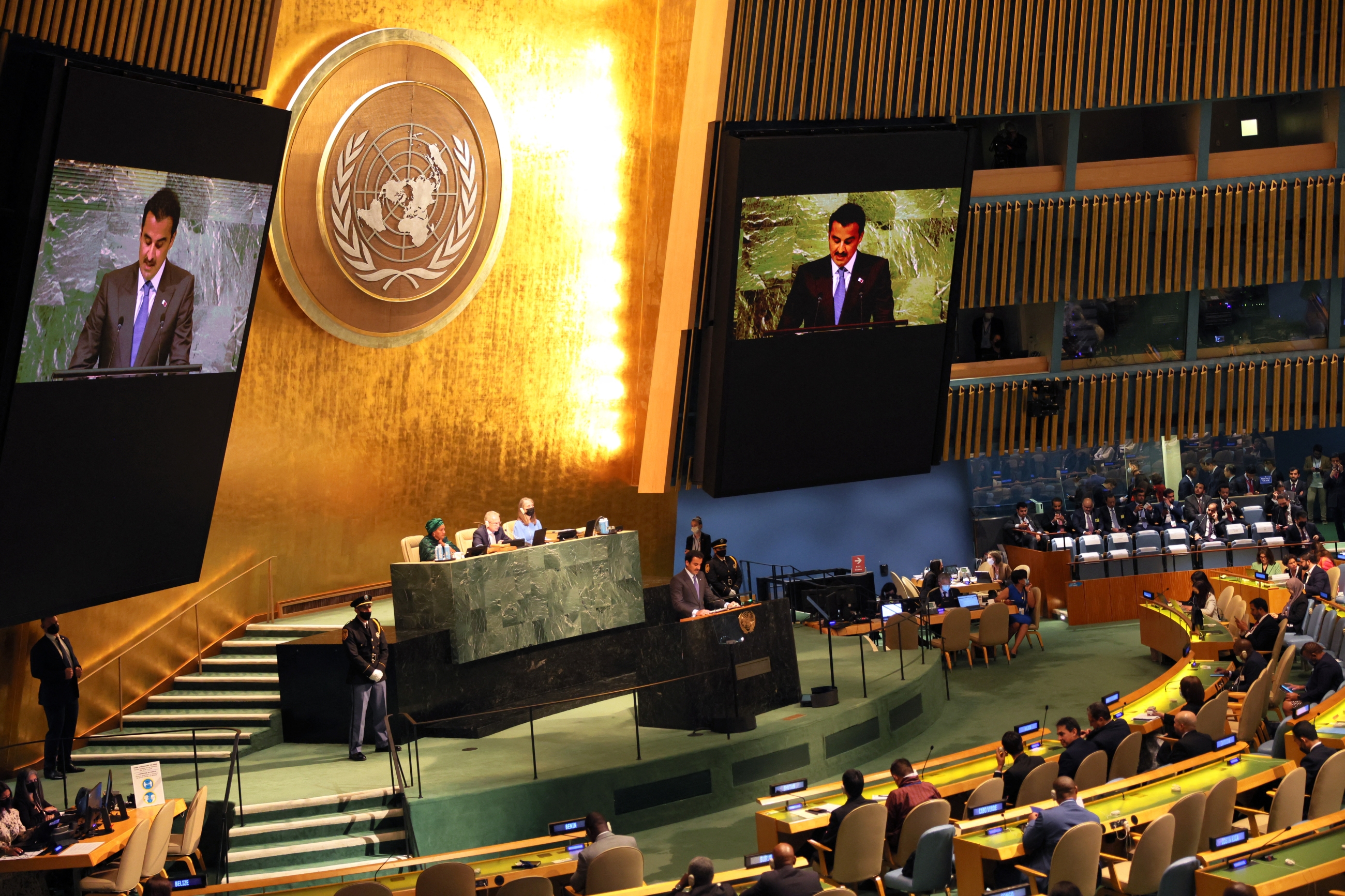
World leaders met on Tuesday for the 77th United Nations General Assembly debate, marking the first fully in-person gathering in three years since the onset of the pandemic.
The war in Ukraine and mounting global economic headwinds took centre stage at the assembly. Middle Eastern leaders from Turkey, Jordan and Qatar took to the podium on Tuesday to address those issues, in addition to other regional developments.
Turkey's President Recep Tayyip Erdogan sought to portray himself as a mediator in the war, and highlighted his country's role in brokering a UN agreement to unlock Black Sea grain.
The deal between Russia and Ukraine was signed in Istanbul in July, boosting the UN's efforts to rein in spiralling food prices. Erdogan called the agreement "one of the greatest accomplishments of the United Nations in recent decades".
"I think the international community revived its confidence in the United Nations as a result of the Istanbul Convention, because the Istanbul Convention proves once again that negotiations can yield results, especially in issues which are vital to all the parties involved," he said.
Erdogan reiterated Turkey's support for Ukraine's sovereignty and territorial integrity, calling for a diplomatic solution to the conflict "which is rational, which is fair, and which is applicable”.
More recently, Turkey's role as a mediator has been overshadowed by signs of growing economic cooperation with Moscow.
Turkey's import of Russian oil has doubled this year, and Erdogan has committed to deepening trade and investment with Moscow, prompting concern in Washington that the Nato country could help Russia evade western sanctions.
The US and EU are reportedly planning to put pressure on Turkey for accepting the Mir Russian payment system.
Syrian conflict
Erdogan also called for a peaceful settlement to the Syrian conflict along the lines of UN Security Council Resolution 2254, which calls for a political transition in the country via elections.
While Turkey was an early supporter of the rebels fighting against the government of Bashar al-Assad, and continues to back militants in northeast Syria, it is reportedly considering normalising ties with Damascus.
'We are trying to do everything we can… to ensure that our Syrian brothers and sisters will be able to go back to their country in a dignified, safe and secure fashion'
- Turkish President Recep Tayyip Erdogan
Turkey has launched several invasions into northern Syria to stamp out Kurdish militants it deems "terrorist groups" and has threatened a new incursion into the country.
On Tuesday, Erdogan trumpeted Turkey's military capabilities saying: "We [Turkey] are powerful enough to take all measures against terrorism."
Turkey currently hosts more than four million Syrian refugees, whose presence in Turkey has become a contentious issue as Erdogan prepares for elections next year. The Turkish leader said his government had built 100,000 permanent residences on Syrian soil for returning refugees.
"We are trying to do everything we can… to ensure that our Syrian brothers and sisters will be able to go back to their country in a dignified, safe and secure fashion," Erdogan said.
The Turkish president also took aim at Greece, accusing Athens of "being tyrants" while handling refugees attempting to reach Europe. Tensions between the Mediterranean neighbours have been on the rise in recent times.
'Alarm bells'
Jordan's King Abdullah warned that “alarm bells" were sounding around the globe, as he touched on climate change, the Israeli-Palestinian conflict and the refugee crisis.
Jordan is one of the most water-scarce countries in the world, and Abdullah warned that the Jordan river, the Dead Sea and coral reefs of Aqaba were “all threatened by climate change”.
The king also issued a stark warning about the plight of Christians in the Middle East, and particularly in the occupied West Bank, saying that “Christianity is under fire” in Jerusalem.
“Undermining Jerusalem’s legal and historical status quo triggers global tensions and deepens religious divides," he said.
Palestinian Christian leaders have criticised Israel for hindering religious services recently and discriminating against them.
“As a Muslim leader, let me say clearly that we are committed to defending the rights, the precious heritage, and the historic identity of the Christian people of our region," Abdullah said.
The Hashemite kingdom is the custodian of Christian and Muslim holy sites in Jerusalem. Abdullah also reaffirmed his call for a resolution of the Palestinian-Israeli conflict along the 4 June 1967 lines, with East Jerusalem as the capital of a Palestinian state.
The king said that peace remained "elusive” in the conflict and that “neither war nor diplomacy has held the answer to this historic tragedy”.
“It is the people themselves, not politics and politicians, who will have to come together and push their leaders to resolve this," he added.
'International responsibility'
Abdullah also urged world leaders to support the United Nations agency for Palestinian refugees (UNRWA), whose mandate is up for a vote this year.
“The international community should send a strong message of support for the rights of Palestinian refugees, ensuring that Palestinian refugee children have schools to go to and access to appropriate medical care," the king said.
'It is the people themselves, not politics and politicians, who will have to come together and push their leaders to resolve this'
- King Abdullah of Jordan
Besides hosting millions of Palestinian refugees, Jordan hosts nearly 1.3 million Syrians who have fled the war.
"Meeting the needs of these and other refugees is an international responsibility," Abdullah said.
Jordan has long been a bulwark of stability in the Middle East. Recently, the cash-strapped country has been at the forefront of US-backed efforts to deepen cooperation between regional states.
The kingdom is seeking to deepen economic ties with Iraq and Egypt. In addition, it has signed two memorandums of understanding with Israel and the United Arab Emirates to exchange solar power for desalinated water.
“In my region, we are looking to build integrated partnerships that tap the capabilities and resources of each of our countries for the benefit of all," Abdullah said.
'Casualties'
Qatar’s ruling emir, Sheikh Tamim bin Hamad Al Thani, took his time at the podium to trumpet his country's role as a reliable supplier of energy and mediator in the region.
On Ukraine, he said that an immediate ceasefire was the only solution.
"This is ultimately what will happen regardless of how long this conflict goes on for," he said, warning that “perpetuating the crisis will not change this result, it will only increase the number of casualties".
Thani called for a resolution to the Israeli-Palestinian conflict along the 1967 lines with East Jerusalem as the capital, as he warned against Israel "pursuing a policy of fait accompli" in the occupied West Bank.
"This will change the rules of the conflict and will change the format of solidarity in the future,” he said.
He said the UN Security Council "must shoulder its responsibility and must compel Israel to end the occupation of Palestinian territories".
The emir also pushed back against normalising ties with the government of Bashar al-Assad, which other regional states such as Jordan, Turkey and the UAE have pursued to varying degrees.
"Some are trying to turn the page on the Syrian crisis,” he said, “ignoring the significant sacrifices made by the blighted Syrian people without fulfilling its aspirations, without ensuring the unity of Syria."
Thani also addressed Iran's nuclear programme, saying: “We in Qatar believe in the need to achieve a just agreement on Iran’s nuclear programme.
“No one has an alternative to such an agreement, and reaching it would be in the interest of the security and stability of the region and would open the door to a broader dialogue at the regional security level.”
Doha has sought to mediate between Tehran and western powers, favouring a return to the 2015 agreement. But those efforts have stalled.
Energy crisis
Some of the emir's most pointed remarks came while addressing the global energy crisis, which he said had been “exacerbating silently even before the war in Ukraine".
Thani said that “decades of pressure to stop investing in fossil fuels before having sustainable alternatives" had "led to significant shortage[s] in energy supplies".
“We have to recognise that the future of energy will include a combination of energy sources, including solar, wind and hydrocarbon energy."
Qatar is the world's largest exporter of LNG and has seen demand skyrocket since Russia's invasion of Ukraine.
The US and EU have banned Russian oil purchases, while Moscow has moved to cut off gas supplies to Europe ahead of winter.
Thani warned against the "weaponising" of energy.
“Banning the transit of these commodities, banning their export or import during times of political crisis and imposing blockades on effective countries is not acceptable," he said. "Just as it is not acceptable to use commodities as tools of war."
Middle East Eye delivers independent and unrivalled coverage and analysis of the Middle East, North Africa and beyond. To learn more about republishing this content and the associated fees, please fill out this form. More about MEE can be found here.


